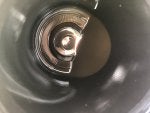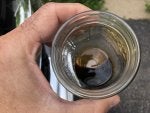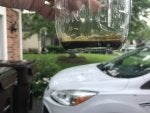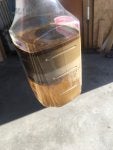Rambodog said:
Never said "get your valves back to brand new condition." Never said anything of the sort. Just stated why it was so important for DI engines to have a can. Also reiterated what a can does and as a result of getting the oil vapor out of the intake air I explained how it could result in better mileage since the oil isn't diluting the A/F ratio anymore. How much, who knows. An increase of some sort is possible and it can add up over time. By the same principle it could be argued that a power increase is a possibility too since the compression ratio isn't decreased by oil dilution causing timing to retard causing a loss in power. Maybe not one that is felt enough by the driver to write home about, but an decrease nevertheless. Imagine the pooling oil over time entering combustion chambers at different times and at different amounts. We are talking a different A/F ratio for every cylinder at any given time. Completely random. Taking that situation away couldn't possibly aid in power and or mileage increases. Seems like simple physics to me so not sure why it's even contested that a mileage increase is a possibility.
No one said that you said that. I said that.
Again, it is not going to "add" mpg to your vehicle. Once your valves are coated on a DI, short of a walnut/media spray, it's very hard to get them clean again. A catch can doesn't clean the valves...it keeps them from getting coated even more. The only way to "gain" mpg would be to clean the valves completely and ensure they don't get coated again.
In the case of your post, what you're asking is that if the truck brand new gets 20mpg and over time, the valves get coated, then it goes down to 18mpg. Add a catch can, and now, due to your theoretical "better A/F ratio", the mpg goes up to 19mpg...your thinking is you've "gained mpg" when in reality, you've still lost mpg because the truck started at a higher mpg when new.









